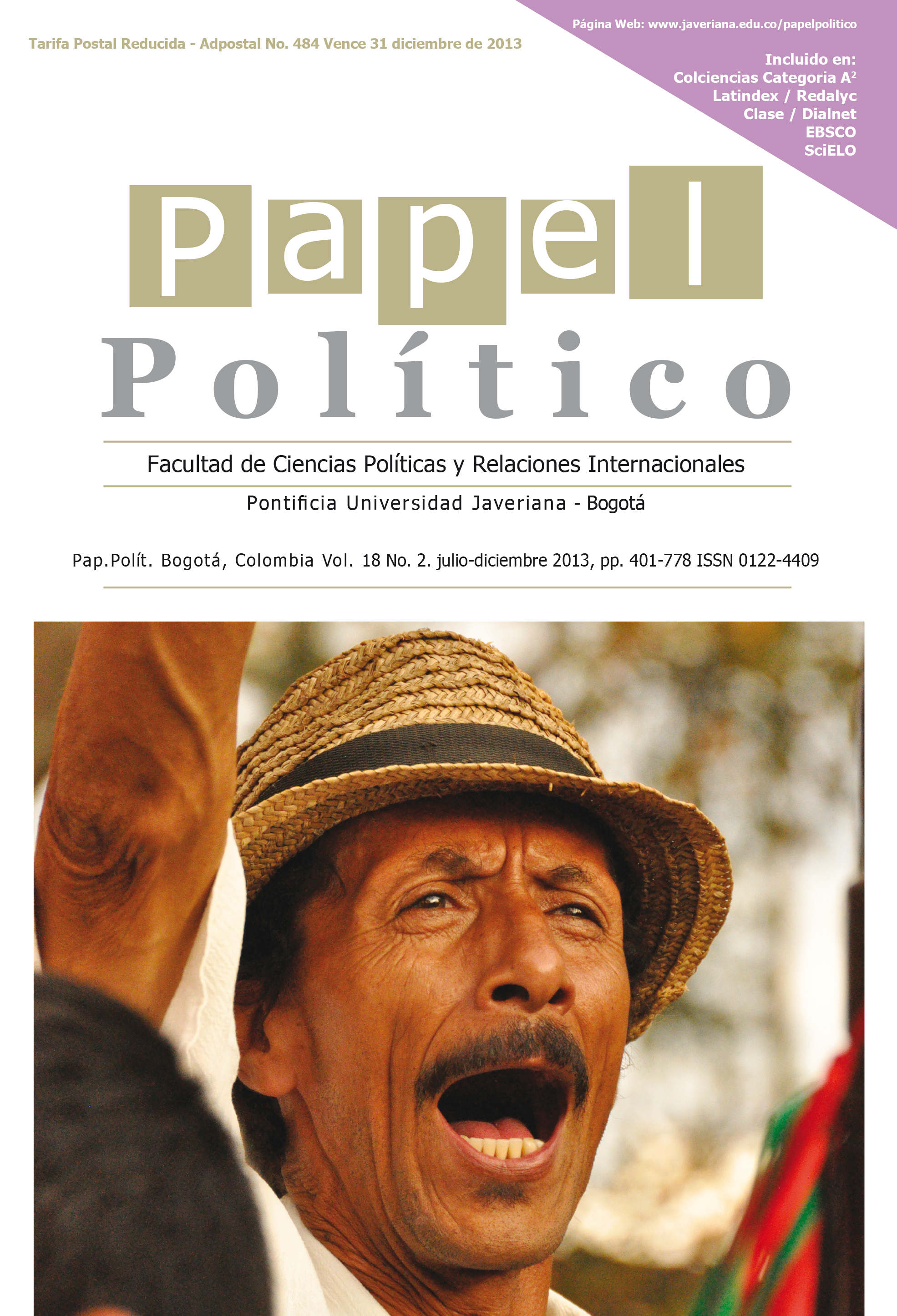Abstract
There is a prolific debate in contemporary political science involving the determinants of candidates’ vote share. Incumbency has been identified as one of the strongest explanatory variables, hence in some contexts this condition may translate, for candidates hoping to win their reelection, a substantive advantage in comparisonto challengers, even in highly partisan scenarios. However, this apparent advantage has been questioned in contexts where the level of consolidation of political and party system is still limited, concluding that in such contexts incumbencyhas a harmful effect upon these candidates.This research constitutes the very first effort to tackle this topic in the Peruvian political context.Therefore, we propose a methodological model suitable for the assessment of electoral performance of candidates in two instances: when these candidates are still not incumbents and, afterwards, when they become so. Accordingto the latest findings regarding this topic, we prove Peruvian results to be similar to those from the group of countries where incumbency is conceived as a disadvantage for candidates.This journal is registered under a Creative Commons Attribution 4.0 International Public License. Thus, this work may be reproduced, distributed, and publicly shared in digital format, as long as the names of the authors and Pontificia Universidad Javeriana are acknowledged. Others are allowed to quote, adapt, transform, auto-archive, republish, and create based on this material, for any purpose (even commercial ones), provided the authorship is duly acknowledged, a link to the original work is provided, and it is specified if changes have been made. Pontificia Universidad Javeriana does not hold the rights of published works and the authors are solely responsible for the contents of their works; they keep the moral, intellectual, privacy, and publicity rights.
Approving the intervention of the work (review, copy-editing, translation, layout) and the following outreach, are granted through an use license and not through an assignment of rights. This means the journal and Pontificia Universidad Javeriana cannot be held responsible for any ethical malpractice by the authors. As a consequence of the protection granted by the use license, the journal is not required to publish recantations or modify information already published, unless the errata stems from the editorial management process. Publishing contents in this journal does not generate royalties for contributors.


